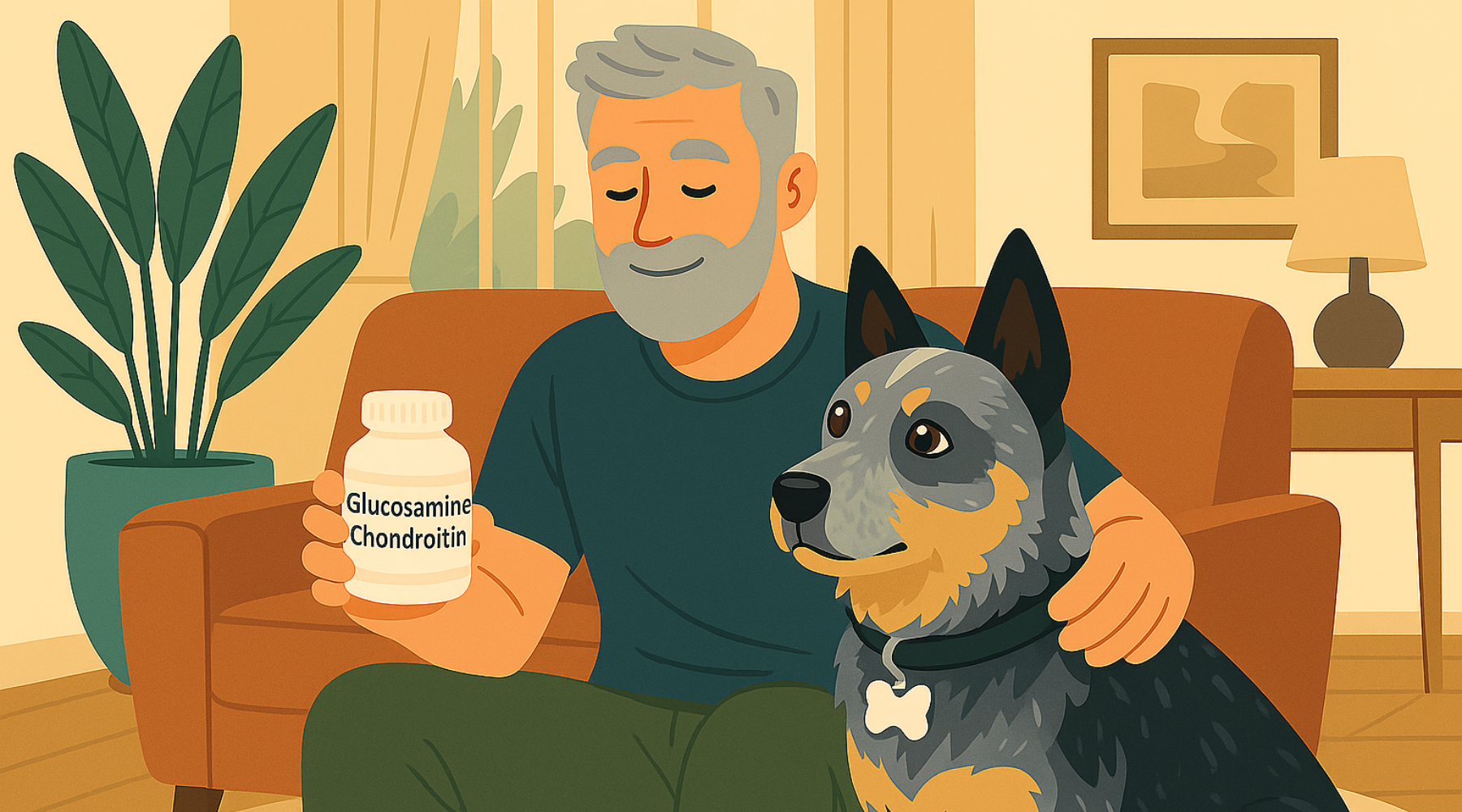Adam’s Journal
Here’s a question from a reader:
I’ve been reading about taking anti-inflammatory medications as an arthritis preventative lately, and I wondered how effective they are. Chondroitin sulfate seems to be the most popular. Even my dog is now on it.
Please weigh in here. Is it actually helpful? My dog and I want to know.
Ken Kronenberger
Oklahoma City
Dr. Scofield Prescribes
Chondroitin and glucosamine are both components of cartilage, and the two are sold – often in a single pill – as over-the-counter dietary supplements, not only for humans but also for cats and dogs. Regardless of the species who consume the supplements, the marketing pitch is the same: They are touted as helping to prevent or relieve joint pain, especially in knee osteoarthritis.
However, as is so often the case, the hype has not measured up to the science.
In humans, researchers have conducted many studies over the years. A smattering have shown modest decreases in pain when compared to a placebo.
But a considerable number of studies, and particularly the ones that have involved more participants, have failed to demonstrate any effects. In fact, scientists stopped a 2016 study involving more than 150 research volunteers ahead of schedule because those taking glucosamine and chondroitin reported worse symptoms than those taking a placebo.
Some have theorized that glucosamine and chondroitin might have a positive impact on joint structure. But physiologic studies, which have looked at changes in the joints of people taking them, have failed to yield convincing evidence.
For our canine friends, the results have been similar. A 2023 study reported in Frontiers in Veterinary Science – not a journal I typically read, but it’s always good to broaden one’s horizons – found that the supplements were no better than placebo at relieving the symptoms of osteoarthritis in dogs. (In case you’re wondering, veterinarians did comprehensive orthopedic assessments and performed gait analyses using a force plate embedded in the ground to measure the animals’ responses to the supplements.)
The good news for your dog and any others taking glucosamine and chondroitin is that both appear to be safe and to carry few, if any, side effects, other than the dollars lost paying for a supplement that may be no better than a sugar pill.
–
Dr. Hal Scofield is a physician-scientist at the Oklahoma Medical Research Foundation, and he also serves as Associate Chief of Staff for Research at the Oklahoma City VA Medical Center. Adam Cohen is OMRF’s senior vice president and general counsel. Send your health questions to contact@omrf.org.



